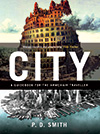The uses of enchantment
The Financial Times, August 11, 2001
Literature and the Gods, by Roberto Calasso. Translated by Tim Parks
(Vintage), 212pp
By PD Smith
As we move forward into the third millennium, some thinkers have paused to consider the sources of inspiration for our new global culture. Novelist and publisher Roberto Calasso has based Literature and the Gods on the Weidenfeld Lectures he gave last year at Oxford, in which he unravels the influence of Greek and Indian gods on literature since 1798. And it appears that reports of their death are greatly exaggerated. They are preserved, Calasso argues, by the “pure act of reading”.
In spite of the increasing importance of science and technology in explaining everything from genes to galaxies, Calasso claims that “the world…has no intention of abandoning enchantment altogether.” He begins at the end of the eighteenth century when Friedrich Schlegel, a pivotal figure in German Romanticism, called for a “new mythology” and started learning Sanskrit. A few years later the poet Hölderlin described the “sacred chaos” that was the origin and essence of nature, the immanent godhead. The divine became “the thing that imposes with maximum intensity the sensation of being alive”, an experience akin to rapture.
According to Calasso, such ideas heralded the rebirth of the gods in western literature. The German Romantics became “the Orient of Europe.” Their notion that aesthetics is rooted in mythology influenced the idealists Schelling and Hegel. Nietzsche, who signed himself Dionysus, said: “Without myth every civilization loses its healthy and creative natural force.” When joined with the political ideal of a national community this energized the terrible ideology of the Nazis. Swastika is, after all, a Sanskrit word.
Yet at its most visionary it produced such lines as Rilke’s unforgettable “For Beauty’s nothing / but the beginning of Terror we’re still just able to bear.” Here beauty is the measure of a divine order that is otherwise beyond our ken. The gods have become our metaphor for those evanescent truths that elude even science.
In Mallarmé’s complex poetry Calasso sees our dilemma: on the one hand the fear that the world consists of nothing but matter, on the other the artist’s conviction that there must be more to life — the sense of the sacred. Here Calasso detects “the anguish we feel for the absence of idols.” But Mallarmé counters the terrible “Nothingness” of materialism with the thought that our minds are conscious matter. Literary creation reveals the human mind in all its subtle splendour.
Mallarmé established the ground rules for modern literature, what Calasso terms “absolute literature,” comprising a “fanaticism for form” and a belief that literature is “a creature sufficient unto itself.” Mallarmé also knew that “to create a work of absolute literature one must reunite oneself with the indistinct time before the gods were born”.
Mallarmé description of the soul as a “rhythmical knot” prompts Calasso to discuss metre in the ancient lore of India. In the sacred Hindu texts, mind and word are inseparable. Metre, the rhythm of language, leads us into the presence of the gods: just as the metre of poetry gives “continuous measure to our breathing,” so the sacred rites “weave continuity” in people’s lives. As in Mallarmé, mind and word become one: “The horse of the mind must submit to the harshness of the word, of the meters: otherwise it would lose its way.”
The style of Literature and the Gods is sometimes, perhaps appropriately, Delphic. But at his best, as in the key chapter on metre, Calasso speaks powerfully of a mythic connectedness that our postmodern, ironic culture has largely lost. He takes us on a wonderful quest, through literature, for those moments when the gods still speak to us. Their voices may not sound the same as they did to the ancients, but their presence can still be felt: The gods are dead; long live the gods.

